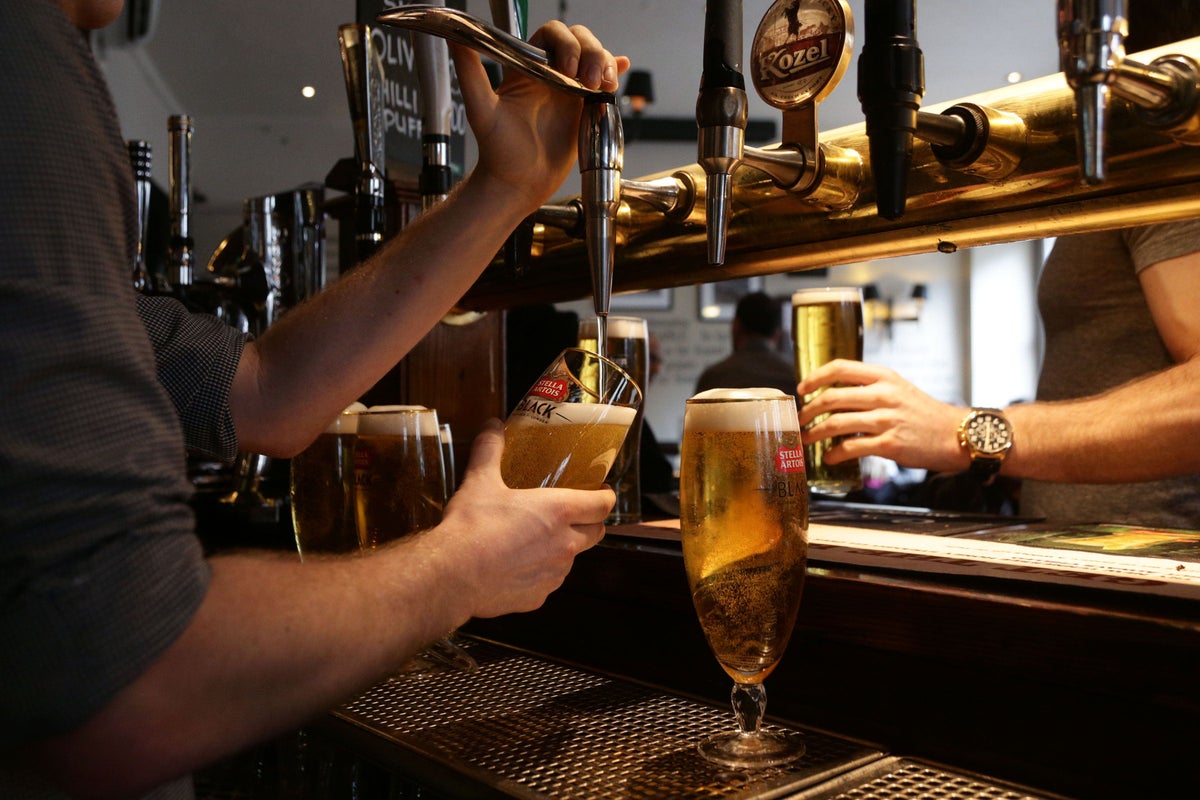
Drinking alcohol, smoking and obesity have contributed to a huge surge in the number of cancer cases in younger people, new research suggests.
Recorded cases of cancer in under 50s between 1999 and 2019 soared by 79 per cent, according to scientists from the University of Edinburgh and the Zhejiang University School of Medicine in China.
Factors driving the rise included diets high in red meat and sodium, but alcohol consumption and smoking were identified as the biggest risks.
Cancers such as early onset breast, stomach, lung and colorectal had the highest death rates, the data showed.
The study did not specify which foods or alcohol were linked to the increased cases or risks but noted high body mass index (BMI) was a “strong risk factor” for early-onset cancer rates.
Some experts have called for caution in interpreting the results and suggested more research will be needed to properly interpret the results of this study including lifestyle drivers.
Dr Ashleigh Hamilton, Centre for Public Health, Queen’s University Belfast, Northern Ireland, said: “The findings challenge perceptions of the type of cancer diagnosed in younger age groups.”
She said the full understanding of the trends remains “elusive”, although lifestyle factors were likely contributors and new areas of research, such as on antibiotic usage, outdoor air pollution or gut microbes are also being explored.
The researchers from Edinburgh and China looked at 29 different cancers across 204 counties and regions examining new diagnoses, deaths, health consequences and risk factors in people aged 14 to 49.
The team found that in 2019 the number of cancer cases for under 50s hit 3.26 million, an increase of 79.1 per cent since 1990. Deaths were also up by 27.7 per cent.
Researchers said that while genetics were likely to play a part, smoking, drinking alcohol and diets high in meat and salt but low in fruit and milk were the “main risk factors”, along with excess weight, a lack of exercise and high blood sugar.
The obesity crisis has impacted cancer rates, the research suggests
Breast cancer made up the largest proportion of cases – 13.7 per every 100,000 people – while windpipe and prostate cancer cases grew the fastest at 2.28 per cent and 2.23 per cent per year respectively. However, early-onset liver cancer cases were down by 2.88 per cent each year.
The regions with the highest rates of early-onset cancers were North America, Australasia and Western Europe.
Study author Dr Xue Li, of the Centre for Global Health at the University of Edinburgh’s Usher Institute, said while cancer cases in young people in the UK showed an “upward trend” from 1990 to 2010, the overall rate remained “stable” from 2010 to 2019.
She added: “Fortunately, the annual mortality rate from early-onset cancer in the UK has been steadily decreasing, a testament to the outstanding cancer screening and treatment efforts over the past three decades.”
Responding to the study, Prof Stephen Duffy, Centre Lead, Centre for Prevention, Detection and Diagnosis, Queen Mary University of London (QMUL), said: “These results are interesting but colleagues will need to give considerable time and thought as to their interpretation. The finding of an increasing trend of breast cancer incidence in women under 50 is consistent with what is happening to rates in the UK.
“Since we do not routinely screen women aged under 50, this is not due to increased diagnostic activity due to screening. It also suggests that similar increases over time in women aged over 50 who are offered screening are not due to screening alone.
“Overall, there are many interesting results here, but they are complicated, and the cancer prevention and control community will need to take a long look at them over the next few weeks to consider exactly what they mean and what we can do to reverse some of the increasing trends.”
Dr Claire Knight, senior health information manager at Cancer Research UK, said cancer remained “primarily a disease of older age”, however “alarming” the findings of the study might seem.
“We need more research to examine the causes of early-onset cancer for specific cancer types, like our BCAN-RAY study that is looking at new ways to identify younger women at higher risk of breast cancer,” she added.







